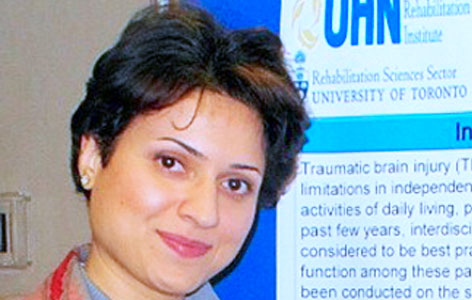
Conference: The Canadian Association of Occupational Therapists (CAOT) Conference, June 20-23, 2018, Vancouver, British Columbia, Canada.
Conference Highlight: Highlighting the role of occupational therapy services in providing the best solutions for the health and the well-being of Canadians.
Conference Summary: Occupational therapists (OTs) and OT students across the country gathered at the annual CAOT conference and shared their recent knowledge about the effects of occupational therapy services on health care and the well-being of Canadians. More than 300 studies were presented and covered a wide range of topics in rehabilitation such as brain injury, pre-term infants, participatory research and relational ethics.
An interesting workshop titled, “The advanced skills for OTs in cognitive rehabilitation after stroke and brain injury” provided comprehensive information about the current functional methods of assessments and interventions, such as memory and orientation for cognitive deficits following brain injury. Many of the practitioners and researchers working in inpatient and outpatient settings shared their experience with these methodologies. This discussion highlighted the gaps that exist in the Functional Independence Measurement (FIM) approach—specifically, gaps in the ability to adequately capture patient function—and the necessity of using complementary cognitive function assessment methods. There was consensus that this issue needs to be addressed in order to improve the overall effectiveness of the assessments.
A presentation titled, “Clinical reasoning underlying assessment of rehabilitation potential following brain injury” also focused on the areas recognized as a knowledge gaps. The study used a ground theory approach to investigate the clinical reasoning of OTs in assessing the rehabilitation potential of acquired brain injury patients for referral to inpatient rehabilitation. The study concluded that early cue gathering from patients’ charts as well as distinguishing between rehabilitation potential (prediction of patient’s recovery and identification of rehabilitation goals) and rehabilitation candidacy (admission criteria to rehabilitation) are the main components of OTs clinical reasoning during referral to inpatient rehabilitation.
This year’s conference provided a great opportunity to learn about the developments in occupational therapy services and the gaps that need to be addressed.




